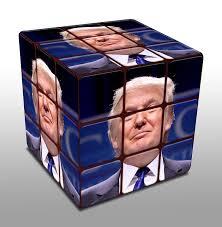Trump and 2020: Between panic and ethnic wars
Few observers foresaw, two and a half years ago, the impact that President Donald Trump would have in the world once installed in the White House.
- Opinión

Few observers foresaw, two and a half years ago, the impact that President Donald Trump would have in the world once installed in the White House. Similarly, many were surprised by the policies that he is applying within the country. In the case of Latin America, he has acted ignoring international law and without any respect for the region’s peoples.
At the global scale, his declaration of a trade war against the Popular Republic of China has induced panic among Wall Street financial speculators. To this concern, one must add uncertainty, since even in his small circle of collaborators no one knows what will be his next step. He has discarded the Climate Change Treaty. He abandoned the pact signed with Iran to avoid nuclear proliferation. He is still active in the Middle East, provoking turmoil from Afghanistan to Libya. In sub-Saharan Africa, he supports military coups, massacres and all kinds of abuses in order to maintain that continent in a permanent state of instability. He promotes something similar in Europe, dividing the 'Old World', demanding that it be militarized (NATO) and that it submit to the trade rules imposed by the White House.
During the 2016 campaign, he promised he would put an end to “globalization”, as well as regional trade agreements. He said he would pay no attention to “climate change” policies proposed by his three predecessors for nearly 25 years. He fulfilled his word and in addition, broke the silent pact with China, moved closer to Russia and supported ‘Brexit’. All this under the slogan: “Make America Great again”.
At the domestic level, he has generated a war between protectionists and supporters of globalization. He has also taken backward steps in history, exacerbating the differences between euro-descendant ethnicities (‘whites’) and the afro-descendent people (‘blacks’). He managed to put blacks, ‘brown’, orientals and native american people in a single category, called non-whites. The Latin Americans of all countries from Argentina to Mexico, known as Latinos (‘brown’). The whites are organizing into a movement of “supremacists” whose numbers grow, among other reasons, thanks to the Trumps self-styled rhetoric.
He is already into a Presidential campaign, preparing himself for the elections of November 2020. In 2016, he defeated the favourite Hilary Clinton on the basis of a negative discourse that finished off his Republican and Democratic opponents. He accused the ex first lady of being “crooked” and insulted his own partisans in televised debates. His strategy, added to a demolishing critique of de-industrialization provoked by neo-liberal policies, gave him the victory.
Trump calculates that he can maintain the advantage gained in 2016 and even increase it, winning in other States that he lost in previous elections. The Democrats think otherwise. At this moment, there are various Democratic pre-candidates who are ahead of him in the polls.
The elections of 2020 will be a referendum on approval of Trump. The Manhattan magnate is betting on economic growth (without decent jobs), the wall on the Mexican border (which is stalled), and his ethnic discourse (that polarizes), to mobilize the vote of his social base next year.
The Democrats have a number of cards up their sleave. The main one is the establishment’s powerful machinery that has ample financial resources and controls the majority of the media. They have 20 pre-candidates, but none of them has the fieriness of Trump. It seems the Democrats lack a coherent program that could inspire the voting masses. The new “left” has the ardor to defeat Trump but has not yet built up its social base.
If nothing significant happens before November 2020, the winner at the Electoral College will do so by a minimum margin.
August 1, de 2019
(Translated for ALAI by Jordan Bishop)
- Marco A. Gandásegui, Jr. is Professor of Sociology with the University of Panama and an Associate Researcher with the Centro de Estudios Latinoamericanos Justo Arosemena (CELA)
http://marcogandasegui2017.blogspot.com/
Del mismo autor
- La pandemia no es el fin del capitalismo 23/04/2020
- Hay que masificar las pruebas contra un virus clasista 19/04/2020
- ¡Qué falta hacen los Comités de Salud de J. Renán Esquivel! 09/04/2020
- La desigualdad social y la desconfianza contribuyen a la epidemia 02/04/2020
- Hacen falta más ‘pruebas’ para ‘suprimir’ el coronavirus 26/03/2020
- La crisis del capitalismo y el coronavirus 19/03/2020
- Urge una movilización general para atacar el corona-virus 12/03/2020
- Se necesita liderazgo y transparencia para enfrentar el corona-virus 05/03/2020
- EEUU veta relaciones entre Panamá y China 27/02/2020
- Roberto Arosemena, sus ideas perduran y sus luchas continúan 20/02/2020
